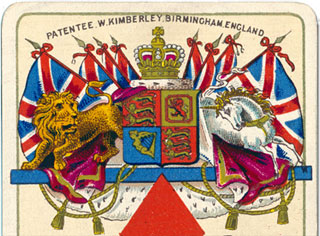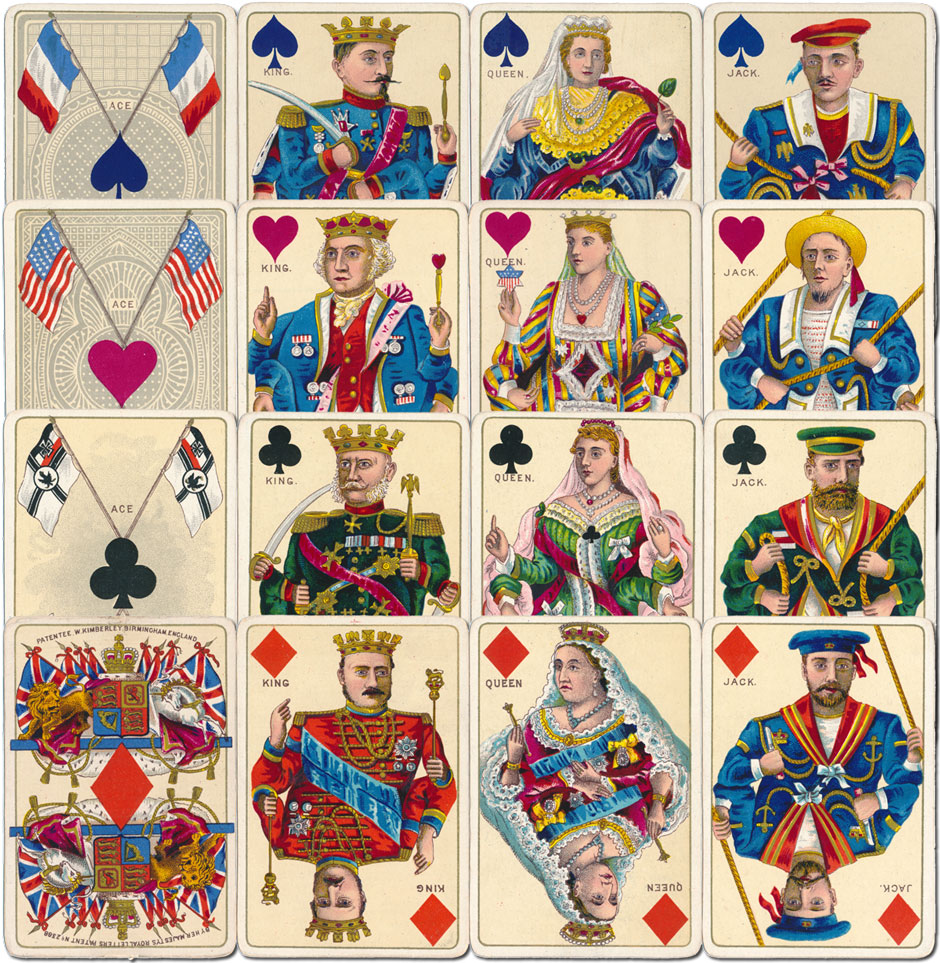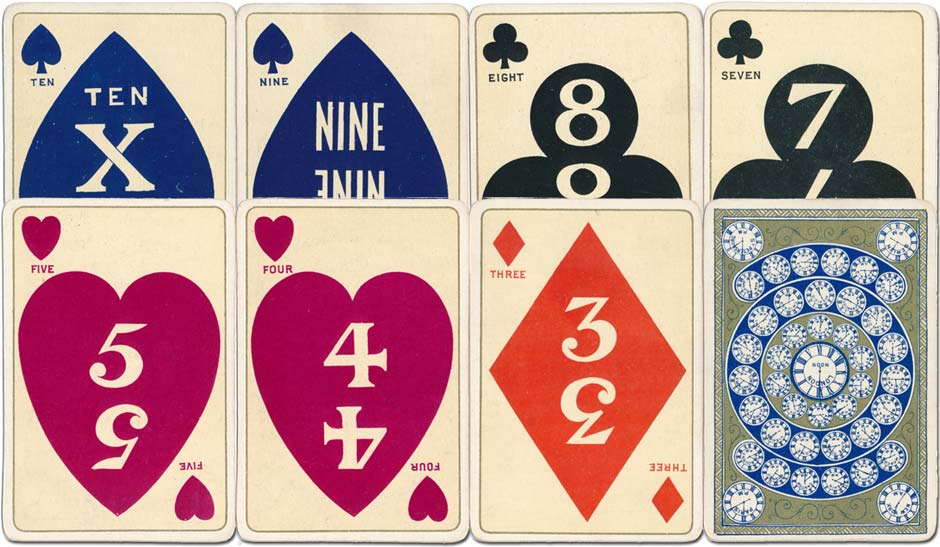Kimberley 1892
William Kimberley applied for a patent in respect of his improved playing cards in February 1892 and his application was fully accepted that year.

Kimberley & Sons, first edition, 1892
William Kimberley applied for a patent in respect of his improved playing cards in February 1892 and his application was fully accepted in December of that year. The first edition of the cards, shown here, is very different from successive editions in quality and method of printing. It is printed very luxuriously by chromolithography using no less than eleven colours, one of which is gold. All cards have an ivory background inside a gold border. The numerals follow a scheme proposed by Kimberley in his patent application of 1892: a large suit-sign occupies the centre of the card, with the numeric value voided in it twice. The pack has non-standard aces, non-standard courts, non-standard colours for pips (spades are blue, hearts maroon) and the pips on the numeral cards occupy almost the entire card.


Above: David Kimberley & Sons' Royal National Patriotic playing cards, first edition c.1892-3. The court cards are richly coloured and incorporate gold. The backs in dark blue and gold on white have forty-one clocks showing different time zones from around the world. The numeral cards 2-10 have their denominations "three", "four", "five" etc. in the corners, rather than index numbers, and the words 'King', 'Queen', 'Jack' and 'Ace' are written in full on the court cards and aces.
REFERENCES
Denning, Trevor, "Kimberley's Royal National Patriotic Playing Cards" in the Newsletter, EPCS May 1984, pp.6-7.
All images on this page from the collection of Barney Townshend.

By Barney Townshend
Member since October 06, 2015
Retired Airline Pilot, interested in: Transformation Playing Cards, Karl Gerich and Elaine Lewis. Secretary of the EPCS. Treasurer of the IPCS.
Related Articles

Tangle Foot Ale
Badger Brewery Tangle Foot strong ale advertising pack.

Scientific Whist
“Scientific Whist” : standard cards with instructions for play on the faces by Chas Goodall & Son, 1...

Agent Provocateur
Branded lingerie collection in a pack of pin-up playing cards.

Nimbus playing cards
Mike Steer’s weather-themed pack with suits in four colours and backs for cardistry.

Agatha Christie and Playing Cards revisited
Agatha Christie uses card-play as a primary focus of a story, and as a way of creating plots and mot...

The Decadent Deck
Studies in the eroticism of the female body by Inge Clayton.

Historic Shakespeare
“Historic Shakespeare” playing cards featuring Shakespearean characters by Chas Goodall & Son.

Copechat Paramount Sorting System
Preserving the past: a specimen deck showcasing edge-notched cards and their ingenious sorting syste...

Heartsette by Herbert Fitch & Co, 1893
A glimpse into a busy print and design office in late Victorian London.

Jeu Révolutionnaire
Court cards and aces from a French Revolutionary pack by Pinaut, Paris, c.1794.

Batman® playing cards
Batman playing cards published by InterCol of London 1989.

Can You Believe Your Eyes?
“Can You Believe Your Eyes?” playing cards featuring visual illusions & other oddities.

Pastime Playing Cards for the Blind
The “Pastime” Playing Cards for the Blind manufactured by Goodall & Son Limd., c.1910.

Doppel-Deutsche Karten by Bratří Willnerové, Teplice
This deck from local manufacturer Bratří Willnerová offers a standard version of the popular Central...

Zürcher Festspiel 1903
Swiss-suited pack designed by Robert Hardmeyer featuring figures from art and politics.

Songs with Flute accompaniment
Eighteenth century English engraved cards with music for voice and flute.
Most Popular
Our top articles from the past 28 days

